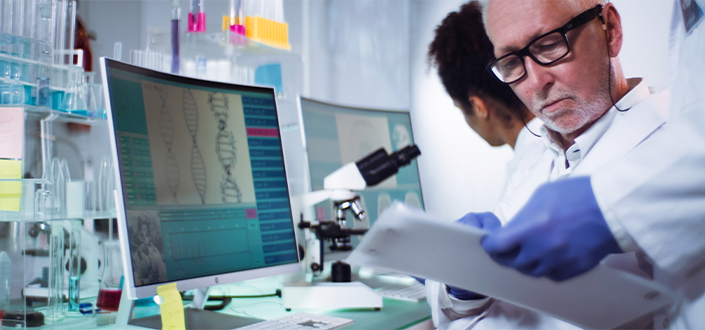Dr Maurizio Battino, Scientific Director of the Universidad Europea del Atlantico (European University of the Atlantic, UNEATLANTICO) and Director of the Fundación Universitaria Iberoamericana (Ibero-American University Foundation, FUNIBER) in Italy, led a study exploring the use of Organ-on-Chip technology as an innovative tool to improve nutrition research within the One Health approach.
Nutrition research has traditionally relied on animal models to evaluate the effects of nutrients and bioactive compounds on human health. However, physiological and metabolic differences between species have limited the applicability of these findings to humans. In addition, ethical concerns and the need for more accurate methods have driven the search for more representative alternatives.
The One Health approach seeks a holistic view of nutrition, recognising the interconnection between human, animal and environmental health. In this context, Organ-on-Chip technology emerges as a promising solution. These microphysiological platforms replicate the microarchitecture and functions of human organs, providing a more accurate environment for studying nutritional responses. Unlike animal models, Organ-on-Chip can incorporate human cells and recreate complex interactions between different cell types, offering more relevant and transferable data.
The study highlights the ability of Organ-on-Chip systems to simulate human physiology, allowing for a more accurate assessment of how nutrients and bioactive compounds affect health. To evaluate the effectiveness of this technology in nutritional research, the researchers developed a human intestine-on-a-chip model. This model included human intestinal epithelial cells grown in a microchannel that mimics the blood flow and mechanical conditions of the intestine. The model was exposed to different nutrients and bioactive compounds to observe cellular and molecular responses.
The results showed that the gut-on-a-chip model successfully replicated physiological responses observed in humans, including nutrient absorption and inflammatory response. In addition, it allowed the identification of specific effects of certain bioactive compounds that had not been detected in animal models, highlighting the relevance and accuracy of organ-on-a-chip technology in nutritional research.
The implications of this study are significant. The use of this technology in nutritional research can improve the accuracy of studies, reduce dependence on animal models, and accelerate the development of personalised dietary interventions. Furthermore, by aligning with the One Health approach, Organ-on-Chip offers a valuable tool for addressing global challenges in health and nutrition.
If you would like to learn more about this study, please click here.
To read more research, consult the UNEATLANTICO repository.
For those interested in specialising in this field, UNEATLANTICO offers various study programmes in the area of health and nutrition, including a degree in Human Nutrition and Dietetics (NHD) and a degree in Food Science and Technology (CTA). Don’t miss the opportunity to become a health professional and contribute to people’s well-being.


